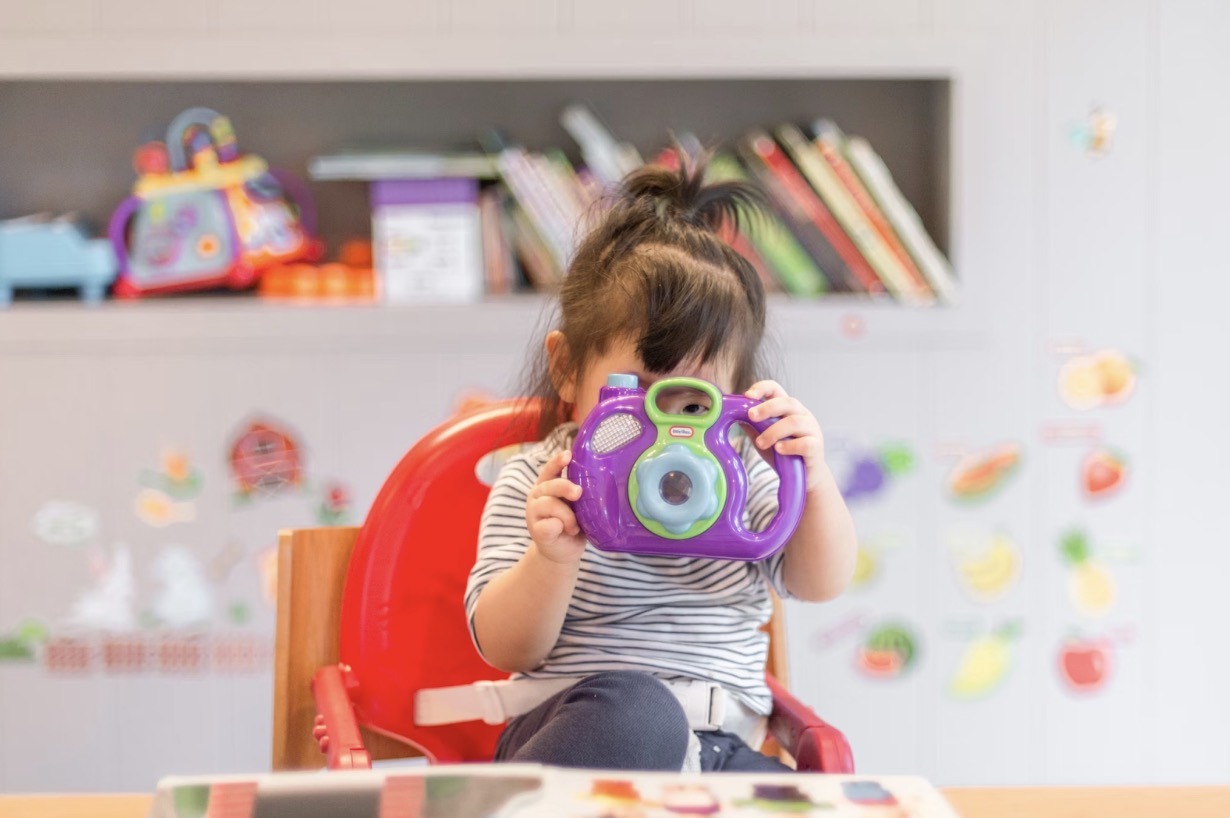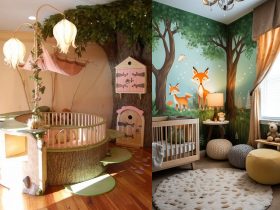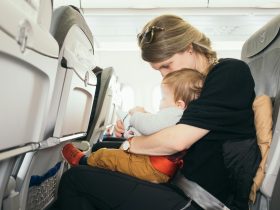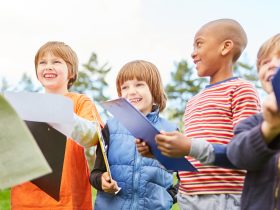As a parent, nothing is more exciting (and yet terrifying) than watching your little one grow up. At every stage of development — from crawling to walking to talking and beyond — you get the privilege of witnessing their transition into a more independent person. It’s awe-inspiring, and at the same time can be nerve-wracking; naturally, you want them to reach these developmental milestones on time so that they can thrive in life. To help guide parents through this critical process—we’ve compiled a helpful list of six key milestones all children should reach as they mature physically and mentally. From learning basic self-care skills like potty training to mastering social cues like empathy—forgetting any one of these essential milestones could signal trouble for young children down the road. But with some patience and understanding from us adults, kids can meet each goal and become knowledgeable learners with even brighter futures ahead!
Reader's Roadmap
Language and Communication
The journey from babbling to speaking complete sentences is truly remarkable and a key developmental milestone. Initially, your baby may start with cooing and making gurgling sounds as young as two months old. As they draw closer to six months, they begin to babble, experimenting with sounds and noises. This ‘babble’ stage often includes consonant sounds like “ba”, “da”, and “ga”.
As they approach their first birthday, babies typically start recognizing common words and may even utter a few themselves. The words might be as simple as “mama” or “dada”. Around this time, one-word statements started to take on more meaning, acting as a form of communication.
By the time your child is eighteen months old, their vocabulary has likely expanded to include several simple words. Working with a paediatric speech pathologist can help further develop language skills and encourage the use of longer sentences. These dedicated professionals can assess your child’s individual needs and create customized interventions to tackle any speech or language delays. Opting for speech therapy for children is a significant way parents can support their children, recognizing that this journey may be challenging to overcome without professional guidance, even with the best intentions and efforts from parents alone. In addition, reading to your child regularly will help foster a love of language—a skill that is essential for success whatever their age. After all, being able to communicate efficiently and effectively is one of the most important traits in any adult.
Motor Skills Mastery
The physical advancement from crawling to walking is an astounding testament to the complexity of human development. This journey usually initiates when infants reach six months of age, marking their first exploration of movement through rolling over or sitting up unassisted.
Around nine months old, many infants start to crawl, a milestone that marks the beginning of a more mobile and inquisitive phase of their lives. This newfound mobility allows them to interact more actively with their environment, stimulating cognitive and sensory development.
Shortly after mastering crawling, infants will often pull themselves up to a standing position using furniture or a caregiver’s hands for support – a clear indication they’re gearing up for their first steps.
The age of walking varies significantly among children but typically occurs around 12-15 months. Initially, your child may “cruise” along furniture, or walk with assistance. Soon, they’ll take their first independent steps, marking a significant milestone in their motor skills development.
Cognitive Landmarks
Cognitive development, another vital aspect of a child’s growth, encompasses their burgeoning abilities to think, explore, and figure things out. This cognitive journey generally begins around the six-month mark, when babies start demonstrating curiosity about the world around them. They might show this by reaching for colorful objects, turning their heads toward sounds, or studying their own hands.
Around their first birthday, children generally start to exhibit problem-solving skills. For example, they may experiment with different ways of achieving a result, such as retrieving an out-of-reach toy. This level of cognitive development can be facilitated by giving your child a variety of toys and other safe objects to explore.
As they approach the age of two, children typically begin to show a greater understanding of cause and effect. They start to recognize that their actions, such as shaking a rattle, will produce specific results, such as noise. They may also begin to display early signs of imaginative play, a crucial aspect of cognitive and social development.
Social and Emotional Development
Social and emotional development is a crucial component of a child’s overall growth, playing a critical role in their ability to form relationships, express feelings, and understand the emotions of others. As infants, children begin to recognize and form bonds with the primary caregivers in their lives. This sense of attachment is usually evident by six months of age, with babies showing a preference for familiar faces and possibly exhibiting anxiety around strangers.
By the time they hit their first birthday, many children display early signs of empathy. They might show concern if they see someone crying or try to comfort them, displaying an awareness of others’ feelings. This is a critical milestone in emotional development, indicating a growing capacity for compassion and social connection.
Around the two-year mark, children typically become more expressive with their emotions. They start to use words to convey their feelings, even if those words are as rudimentary as “happy,” “sad,” or “angry.” They also begin to understand that others have emotions separate from their own.

Self-Care Achievements
Self-care abilities are crucial indicators of a child’s developmental progress, encompassing skills like dressing, feeding, and maintaining personal hygiene. As children grow, these tasks transition from adult-led activities to markers of independence, fostering a sense of self-reliance and confidence in young learners.
When it comes to dressing, toddlers may show initial signs of independence around their second year. They may start by pulling off easy-to-remove items, such as hats or socks. As they turn three, they can typically dress themselves with minimal assistance, though tasks like buttoning or tying shoelaces may still be challenging.
Feeding skills begin to develop even earlier. By their first birthday, many children start using their fingers to feed themselves bite-sized pieces of food. As they grow older and their motor skills improve, they graduate to using utensils, gradually mastering the spoon and then the fork.
School Readiness
As children approach the age of starting school, certain milestones indicate they’re ready for this big transition. School readiness encompasses not only knowledge acquisition but also the development of social skills and emotional maturity.
Children who are ready for school typically demonstrate an increased attention span, showing the ability to concentrate on a task for extended periods. They also exhibit curiosity about the world, asking questions and showing an eagerness to learn new things.
Socially, children ready for school often display the ability to interact well with their peers. This includes sharing, taking turns, and demonstrating empathy. They understand the concept of rules and can follow simple instructions.
In the emotional arena, children who are ready for school show a level of independence, such as being able to manage their belongings and handle basic self-care tasks. They have learned to manage their emotions and can express their feelings through words.
In conclusion, as a parent, you should look for early signs of growth and development in your child. By tracking the six most important developmental milestones – motor skills, cognitive abilities, social and emotional maturity, self-care achievements, and school readiness – you can ensure your little one is on track to reach their full potential!







Leave a Reply
View Comments